We understand that Douglas Ross MSP will publish an updated Right to Addiction Recovery (Scotland) Bill on Wednesday.
Turning Point Scotland responded to the consultation on the draft Bill in January 2022, which at that point aimed to
- Establish a legal right to treatment for problematic alcohol or other drug use
- Introduce new national standards and guidance to increase accessibility of rehabilitation programmes
- Consider an additional complaints procedure specific to these proposals
We carefully considered our response to the proposals, because while we welcomed the action and commitment from the Scottish Conservative Party to reduce harm, prevent deaths and support recovery, we had a number of concerns around what was being proposed.
In short, we did not believe that the proposed Bill was the right way to address the issues that must be remedied within our treatment system. Our feedback focussed on three main concerns:
- The proposal was too narrow in its idea of the treatment that should be available. It clearly prioritised residential rehabilitation services, and while we agreed that work must be done to improve the quality and accessibility of this treatment model – in line with the recommendations made by the Residential Rehabilitation Working Group – this should only be taken forward as part of a wider, coordinated and evidence-based system of treatment and support
- It perpetuated the view that achieving abstinence is the only goal of treatment and support services, without acknowledging the steps that may need to be taken to achieve this goal in a safe and sustainable way.
- If that proposed Bill were to pass, the Right to Recovery would be meaningless unless we take further action to address weaknesses in our system. This is where we should be focussing our time and resources; this legislation feels like a distraction from this work, rather than a solution.
We hope that this updated Bill will reflect the responses submitted to that consultation, and that it will better reflect the evidence on what is really needed, and what really works. In our view, this is:
- A better response to near-fatal overdoses, building on models like the Glasgow and Lothian Overdose Response Teams
- Safer Consumption Facilities to reduce deaths from overdose, reduce harm, and to make further treatment and support more accessible
- Drug testing services and other assertive outreach models that meet people where they are
- Investment in expanding and improving Medically Assisted Treatment (MAT) – specifically by improving access to Heroin Assisted Treatment and by implementing the MAT Standards
- Investment in crisis and stabilisation services, as well as residential and community based rehabilitation and aftercare services
- Better integration and communication between all parts of the system, at national and local level, in strategic planning and service delivery, to coordinate efforts, share resources and make the most of every opportunity to prevent and reduce harm
